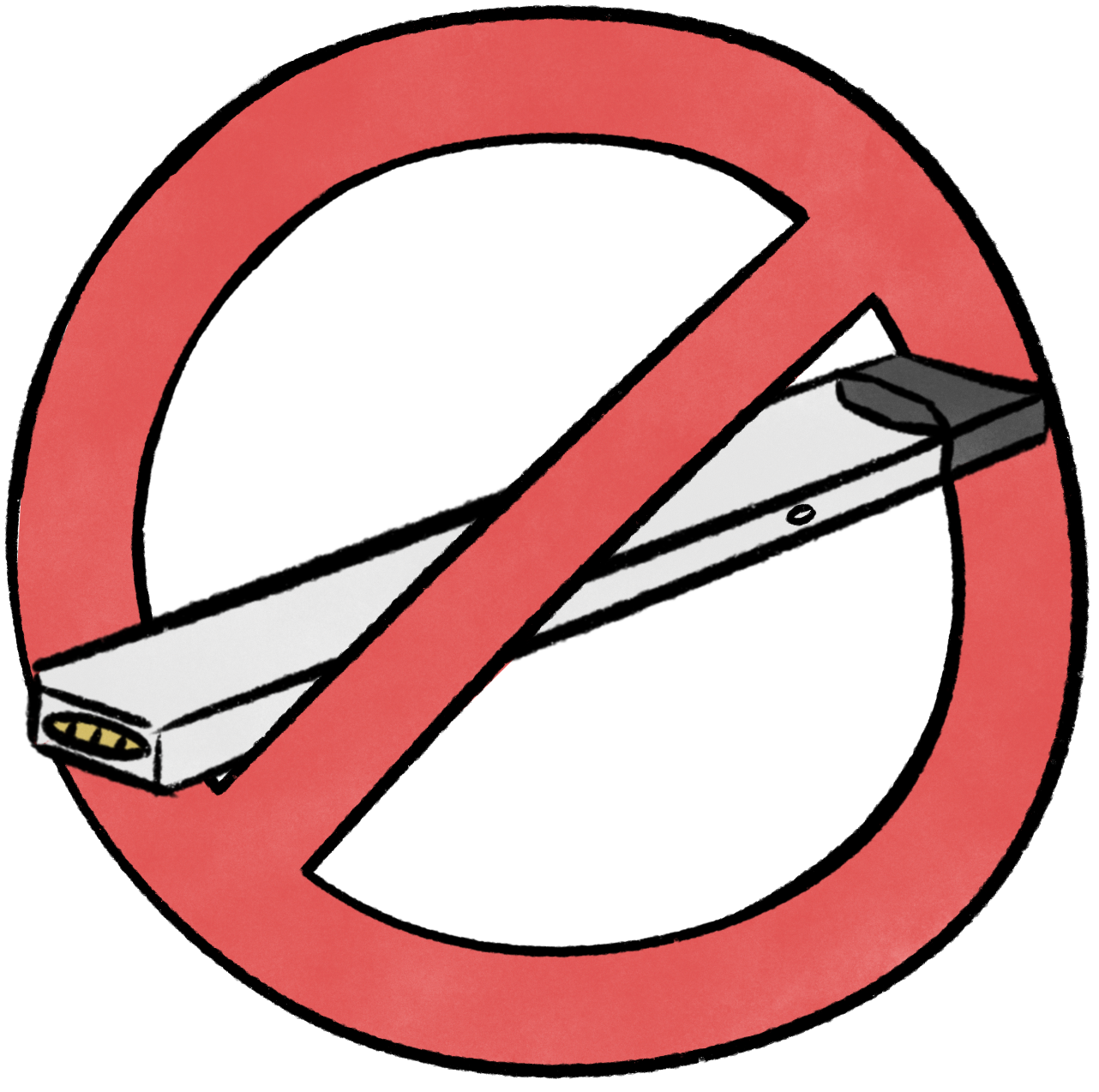Over the past few years, Juuling amongst teenagers in America has increased significantly, and Deerfield has not been immune to this trend. High school students all along the East Coast are Juuling in bathroom stalls and classrooms.
In response to the continued prevalence of Juuling on campus, Deerfield changed its rules on Juuling over the summer by reducing the number of strikes students can receive before a Disciplinary Committee hearing.
Assistant Head for Student Life Amie Creagh said that national widespread use across high schools and colleges also helped influence the Student Life Office’s decision.

“It would have been irresponsible for the Student Life Office to not do something,” she said.
Juuls are non-combustible electronic cigarettes. They gained immediate popularity when they entered the cigarette market in 2017.
According to the FDA, Juuls do come with published health risks. They contain nicotine, an addictive substance that impairs teen brain development, as well as toxic chemicals such as formaldehyde.
During Family Weekend, parents were instructed on how to recognize Juuls. They were shown pictures of Juuls, which strongly resemble USBs in their small size and shape, and informed that Juuling does indeed occur on campus.
“It’s marketed perfectly to the teen. We have a problem where Deerfield students are getting addicted to tobacco and nicotine,” Ms. Creagh elaborated.
In April 2018, Juuling was declared a teen health epidemic by FDA Commissioner Scott Gottlieb.
Popular e-cigarette brand JUUL, worth more than $16 billion dollars, claims that their product is a healthier alternative for adult smokers transitioning from combustible cigarettes.
However, the company remains under fire for not doing enough to prevent minors from buying its product.
On September 12, 2018, the FDA stated, “The FDA won’t tolerate a whole generation of young people becoming addicted to nicotine as a tradeoff for enabling adults to have unfettered access to these same products.”
In the past, students’ first nicotine or tobacco violation resulted in the assignment of 7 hours of work detail and a talk with the Health Center on the harms of Juuling.
A second violation led to more work hours and a Letter of Reprimand. The third violation led to a DC hearing.
Over the summer Deerfield essentially removed a strike. Deans Kevin Kelly, Rebecca Melvoin and Sam Bicknell worked with Amie Creagh to change the rules so that the first violation meant work hours and a letter of reprimand, while the second moved to a DC.
In the past, the number of Juuling DCs was “very, very low” according to Dean of Students Mr. Kelly because Juuling was viewed as a tobacco violation.
Students in possession of a Juul can be taken to the Health Center for testing, which tests only for tetrahydrocannabinol (found in marijuana) or nicotine.
Mr. Kelly clarified that “students who call sanctuary have no disciplinary consequences. However, students who acknowledge their use of contraband (when confronted by an adult) are required to go through the disciplinary process.”
While students cannot be randomly drug tested, there is a community concern testing policy. If a student suddenly performs poorly in multiple classes for no plausible reason, misses classes, or has a pungent room, they can be tested.
If there is a loud room of students on a certain hall after curfew and it smells strongly like cotton candy or creme brulee, the faculty resident might be justified in further inspecting the situation. However, there must always be specific reasons for testing a student.
Yet this year, Mr. Kelly indicated that there have been a total of nineteen to twenty AHC and DC hearings so far. The exact reason remains ambiguous, even to Mr. Kelly.
Looking forward, Mr. Kelly noted that winter term usually marks an increase in the number of DCs.
“In the winter, it’s cold and dark. People are fatigued. Students plateau, the excitement of the new year wears off, and things seem to be more challenging for some folks in terms of making decisions.”
Thus, the motive behind last year’s new Be Worthy Campaign was to help younger students struggling with alcohol and drugs.
There is research supporting that having a mentor and building a positive relationship helps students stay away from contraband.
Mr. Kelly shared, “It’s unrealistic for me to expect perfection from them all the time.”
When asked if she believed the rule change had led to a noticeable change in the amount of Juuling on campus, Ms. Creagh said that because Juuls are nearly undetectable, it is hard to tell.
In the past several years, Mr. Kelly clarified that the DC met on average between four to six times during the fall. A dozen would have been considered a large number.
But his biggest concern about the high number of DCs is that he wants students to focus more on how they treat each other, and kindly look out for each other’s weaknesses. He added, “Kindness leads to trust, and trust leads to positive relationships. I want kids to be very very conscious about how their actions affect others.”

